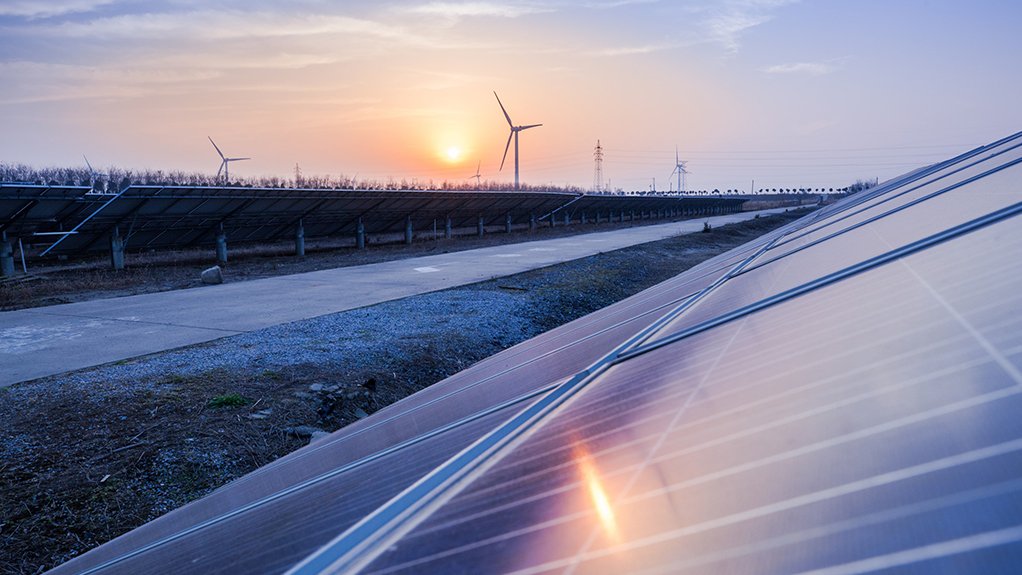The National Planning Commission (NPC) has called for the declaration of an ‘energy emergency’ to override any red tape currently preventing the construction of new electricity capacity, as well as to make it possible to build 10 000 MW of new generation and 5 000 MW of new storage capacity over the coming two years.
“The most immediate priority is to ensure that new generation capacity is rapidly and urgently brought on to the grid, together with significant new storage capacity.
“Evidence suggests it is possible to do this within 24 months, if 10 000 MW of new generation capacity is rapidly constructed and commissioned as well as 5 000 MW of storage capacity,” the NPC said in a statement, noting that solar and wind power projects could be built rapidly.
Ending load-shedding, the commission added, needed to become a “unifying national goal for the whole country and all stakeholders”.
To achieve the objective of rapidly adding new generation and storage capacity, the NPC said it would be necessary to remove key obstacles, including:
- removing the 100 MW ceiling on distributed generation projects, as Eskom’s grid code and grid-connection authorisation processes were sufficient to regulate this market;
- scrapping any National Energy Regulator of South Africa registration processes that delays implementation and replacing these with an online registration procedure for database purposes only;
- streamlining environmental and water-use approvals, while taking fuller advantage of the Renewable Energy Development Zone framework that allows for fast-tracking of such approvals; and
- introducing a temporary exemption from local-content requirements for construction and commissioning of new generation and storage capacity due to come online in the next 36 months. In parallel, key stakeholders should reach a formal agreement that strikes a balance between short-term importation of components with the need for phasing in upstream industrialisation over the medium- to long-term.
The NPC statement was released amid a protracted period of intense load-shedding, which began in late June and was, at times, implemented at Stage 6 during an unprotected strike at Eskom, precipitated by a wage deadlock.
The utility and its three recognised unions signed a 7% wage agreement on July 5, which debt-laden Eskom said would add a further R1-billion to its wage bill and would be a struggle to afford.
The statement also follows a progressive intensification of load-shedding over the past three years, with 2021 having officially been declared as the worst-ever year for rotational power cuts, but with 2022 poised to eclipse that title.
The NPC stressed that the National Development Plan to 2030 could not be achieved without energy security and noted that load-shedding, which has been a feature of the electricity supply industry since 2008, was constraining many developmental policies and strategies.
The NPC welcomed the statement that President Cyril Ramaphosa was leading the response to the energy crisis.
It also took note of recent government efforts to reform the energy supply industry, as well as the interventions of Operation Vulindlela that had helped to ensure timely implementation of solutions.
However, the NPC argued that “the declaration of an ‘energy emergency’ is required that will make it possible to override some of the red tape that is preventing the acceleration of delivery of new generation capacity”.
The commission also highlighted the importance of mobilising finance for short- and longer-term investments needed to arrest load-shedding and place the electricity supply industry on a stable footing.
“To this end, the NPC welcomes the establishment by the Presidential Climate Commission of a Forum comprising South African development finance institutions led by their respective Chief Executives.”
It also called for the Integrated Resource Plan to be updated yearly “to meet South Africa’s energy needs, including incorporating technology advances to ensure that South Africa achieves energy security that is lowest cost and consistent with South Africa’s approved Nationally Determined Contribution”.
Earlier, the national executive committee (NEC) of the governing African National Congress also urged government to speed up energy reforms, as well as: facilitate private investment in new generation capacity; speed up the repurposing of power stations with alternate energy sources; accelerate the procurement of battery storage; empower municipalities to procure additional electricity; and encourage business and households to invest in renewable energies.
The NEC also called on Eskom to increase maintenance and improve the availability of existing supply, while acquiring appropriate skills and experienced mentors.
The NEC also called on government to act decisively in investigating and acting on reports of sabotage of the country’s generation and distribution infrastructure.
It also called for a campaign against illegal connections to eliminate load reduction, which is placing an added burden on communities, and called on all South Africans to put into effect energy-saving measures to alleviate stress on the national grid.
EMAIL THIS ARTICLE SAVE THIS ARTICLE ARTICLE ENQUIRY
To subscribe email subscriptions@creamermedia.co.za or click here
To advertise email advertising@creamermedia.co.za or click here











